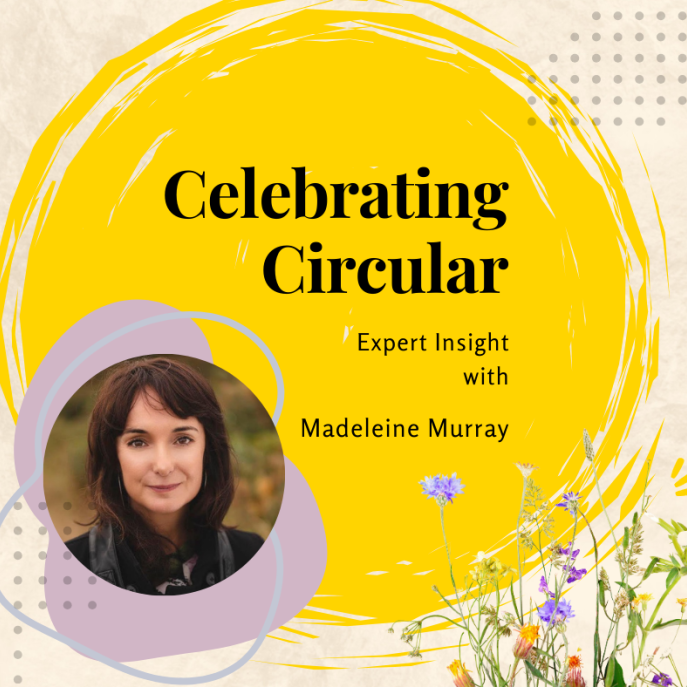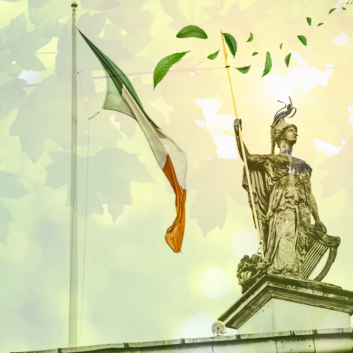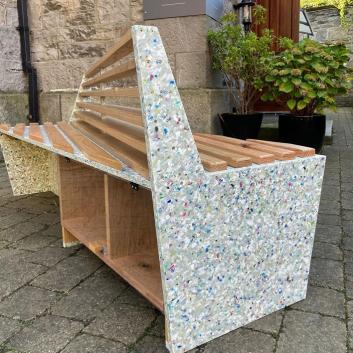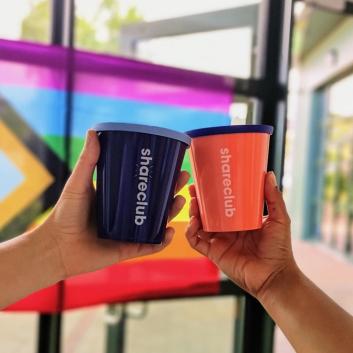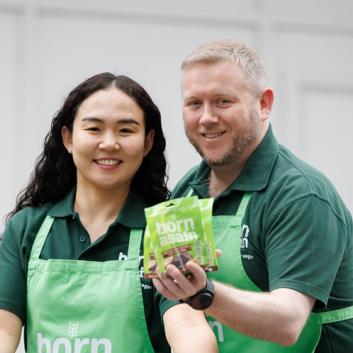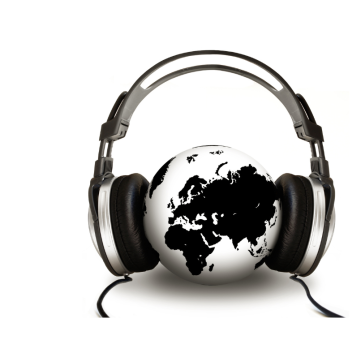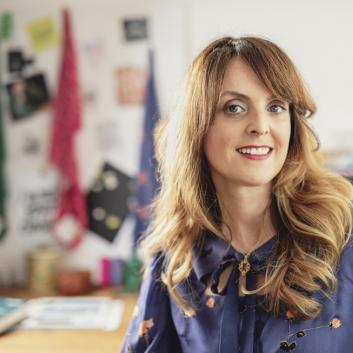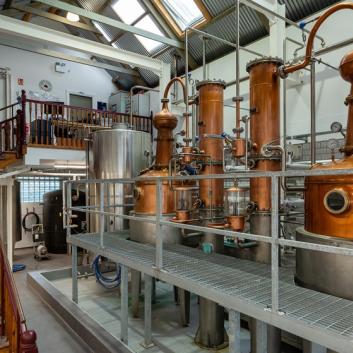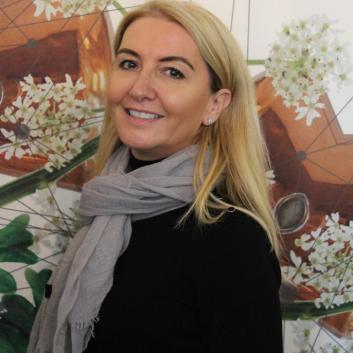“Stories alone won’t save the world, but they have a massive role to play”
This article is part of the 'Celebrating Circular` initiative and story collection that spotlights trailblazer Irish businesses making strides towards a more sustainable and low-carbon economy.
It aims to highlight the encouraging achievements of companies that participated in the MODOS circular economy training provided by Local Authorities to local businesses and supported by the Regional Waste Management Planning Offices and Dublin City Council.
Expert Insight
As Co-Founder of Change by Degrees, an online sustainability skill-building business, Madeleine Murray has been at the forefront of engaging companies and organisations in climate action and implementing sustainability strategies for many years.
She delivers the communication and customer engagement modules of the MODOS programme, aiming to help companies explore what makes a good story and how to use storytelling for good.
Smashing the ‘green assumption’
She warns that greenhushing, when deliberately concealing your sustainability efforts due to fear of being called out, is a trend that can set back climate action since learning from each other and seeing how others are taking steps towards this direction is a crucial element in shifting mindsets.
Madeleine explains: “I want them to find authentic stories so they can share what they are doing without drifting into greenwashing.”
“To be clear, nobody ever has the perfect story, but everyone has an impact and a mission. I try to focus on the power of using your influence, which can become your superpower on the market to grab attention and engage stakeholders.”

She adds, "Stories alone won`t save the world, but they play a massive role in steering attention, priorities and actions. We are social beings heavily influenced by other people and brands.”
When Madeleine and her team started developing training to get employees more involved with sustainability, they first wanted to smash the big ‘green assumption’ that it's all about the environment.
Breaking down carbon silo thinking
“We asked what colour sustainability is for you. The overwhelming answer was green. Then we started showcasing that sustainability is so much more than environmental issues, and it definitely involves social issues.”
Once they get to break down the ‘carbon silo’ thinking, it opens up a library of stories that shines a light on how multidimensionally sustainability can be.
Although she admits that it is an uphill battle to position sustainability as a core business issue.
“People are distracted by the day job – meeting targets, scaling, HR, finance – a million things that can take the place of sustainability, so one of the most important things is to make businesses realise that this is an overarching theme that will guide actions on all fronts.”
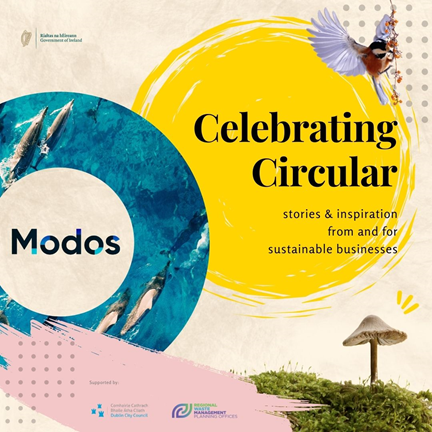
Learn more about the Celebrating Circular initiative!
The 'Celebrating Circular` digital publication and online story collection spotlight trailblazer Irish businesses making strides towards a more sustainable and low-carbon economy.
Download the digital publication unveiling stories of changemakers and expert insights!
Focusing on the ‘human hook’
Madeleine shares that a critical part often missing from sustainability communication is the “human hook,” which could help people relate to a story.
She explains that some simple yet strategic steps can help companies find their authentic voice and tell genuine stories. She uses a model that starts with finding ‘The Ambition’ and identifying specific goals you want to achieve with a piece of communication. The more specific, the more you can target your message and measure your impact.
Next, you choose a definite audience and understand it to tailor your message. Ideally, you select the most influential audience that can have the biggest impact on achieving your goals.
Finally, you find your hook that resonates with your selected target group and craft a story in human language, making your message easier to receive on the other side.
“Certain things will enhance your success in telling your story, such as finding a relatable and lovable ‘messenger’ to tell your story besides having clear actions you want your audience to do.”
She adds that calibrating your communication also heavily depends on knowing your available time, talent and budget so you can set realistic goals and assign resources accordingly.
At the MODOS training, she shares many realistic real-life examples, examining potentials, tensions and conflicts between what works and what to avoid.
Revising language to engage audiences
One of the case studies she highlights is a campaign run by AnPost to promote green loans, where they used softer and more likeable language.
For instance, instead of saying ‘retrofit’ or ‘insulation’, they used ‘cosy’ and ‘upgrade’, which made their offer more appealing. Madeleine adds that besides choosing their words carefully, the other success factor was having a relatable messenger to deliver the message.
She believes that, in addition to showcasing examples, participants need time to internalise learning as part of the MODOS course.
“I like to pause and allow people to reflect. Awkward silence is OK for me, so they have time to digest and get back to sharing instead of swallowing it down. This is the space where real connections are built.”
Exploring synergies and spotting opportunities
Madeleine is inspired by the fact that participants typically develop an appetite to learn more and explore further opportunities after a training session she or her colleagues host.
While learning is essential, she believes the power of collaboration can play a vital role in boosting impact.
Since she has worked with a wide variety of clients across multiple sectors, she loves taping into her extensive network to explore synergies by connecting people.
Spotting opportunities is one thing that drives her to push beyond boundaries.
She says: “What I love about sustainability is the endless possibilities. Recently, I became a bit obsessed with AI, exploring how it can be used in our field of work. Maybe it’s the nerd in me, so I get to do more research. But in the end, this lets us go ahead of the market and help clients do the same.”






